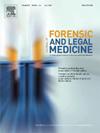The lasting impact of COVID-19 on forensic mental health: A review of shifts in patient profiles, service delivery, and legal considerations
IF 1.2
4区 医学
Q3 MEDICINE, LEGAL
引用次数: 0
Abstract
The COVID-19 pandemic has had a profound and lasting impact on forensic mental health, reshaping patient profiles, disrupting service delivery, and introducing new legal and ethical challenges. This narrative review examines the long-term implications of the pandemic on forensic psychiatric populations, mental health service provision, and the justice system. Evidence suggests that rates of severe mental illness, including psychosis, depression, and anxiety, have increased among forensic patients, exacerbated by isolation, stress, and reduced access to care. Additionally, substance use disorders, and co-occurring psychiatric conditions have become more prevalent, complicating treatment and rehabilitation efforts. The pandemic also accelerated the adoption of telepsychiatry in forensic settings, improving accessibility but raising concerns about the reliability of remote assessments for competency evaluations and risk assessments. Inpatient and prison-based forensic psychiatric services experienced staff shortages, increased patient aggression, and limited access to therapeutic programs, further straining the system. Court closures and legal case backlogs delayed forensic evaluations, raising human rights concerns for detained individuals. Ethical dilemmas emerged regarding involuntary hospitalization, treatment prioritization, and resource allocation. As the forensic mental health field transitions into a post-pandemic landscape, key lessons include the need for hybrid forensic assessment models, strengthened forensic infrastructure, and better integration of legal and clinical perspectives. Future research should focus on developing resilient forensic mental health policies and ensuring equitable access to care while maintaining legal and ethical standards.
COVID-19对法医心理健康的持久影响:对患者概况、服务提供和法律考虑方面变化的回顾
2019冠状病毒病大流行对法医心理健康产生了深远而持久的影响,重塑了患者的形象,扰乱了服务的提供,并带来了新的法律和道德挑战。本叙述性综述审查了大流行对法医精神病学人群、精神卫生服务提供和司法系统的长期影响。有证据表明,在法医病人中,包括精神病、抑郁和焦虑在内的严重精神疾病的发病率有所上升,而隔离、压力和获得护理的机会减少又加剧了这种情况。此外,药物使用障碍和同时发生的精神疾病变得更加普遍,使治疗和康复工作复杂化。大流行病还加速了在法医环境中采用远程精神病学,改善了可及性,但也引起了人们对能力评估和风险评估远程评估可靠性的担忧。住院和以监狱为基础的法医精神科服务人员短缺,患者攻击增加,获得治疗方案的机会有限,进一步使系统紧张。法院关闭和法律案件积压推迟了法医评估,引发了对被拘留者的人权担忧。在非自愿住院、优先治疗和资源分配方面出现了伦理困境。随着法医精神卫生领域过渡到大流行后的格局,重要的经验教训包括需要混合法医评估模式、加强法医基础设施以及更好地整合法律和临床观点。未来的研究应侧重于制定有弹性的法医精神卫生政策,并在保持法律和道德标准的同时确保公平获得护理。
本文章由计算机程序翻译,如有差异,请以英文原文为准。
求助全文
约1分钟内获得全文
求助全文
来源期刊

Journal of forensic and legal medicine
MEDICINE, LEGAL-
CiteScore
2.70
自引率
6.70%
发文量
106
审稿时长
57 days
期刊介绍:
The Journal of Forensic and Legal Medicine publishes topical articles on aspects of forensic and legal medicine. Specifically the Journal supports research that explores the medical principles of care and forensic assessment of individuals, whether adult or child, in contact with the judicial system. It is a fully peer-review hybrid journal with a broad international perspective.
The Journal accepts submissions of original research, review articles, and pertinent case studies, editorials, and commentaries in relevant areas of Forensic and Legal Medicine, Context of Practice, and Education and Training.
The Journal adheres to strict publication ethical guidelines, and actively supports a culture of inclusive and representative publication.
 求助内容:
求助内容: 应助结果提醒方式:
应助结果提醒方式:


